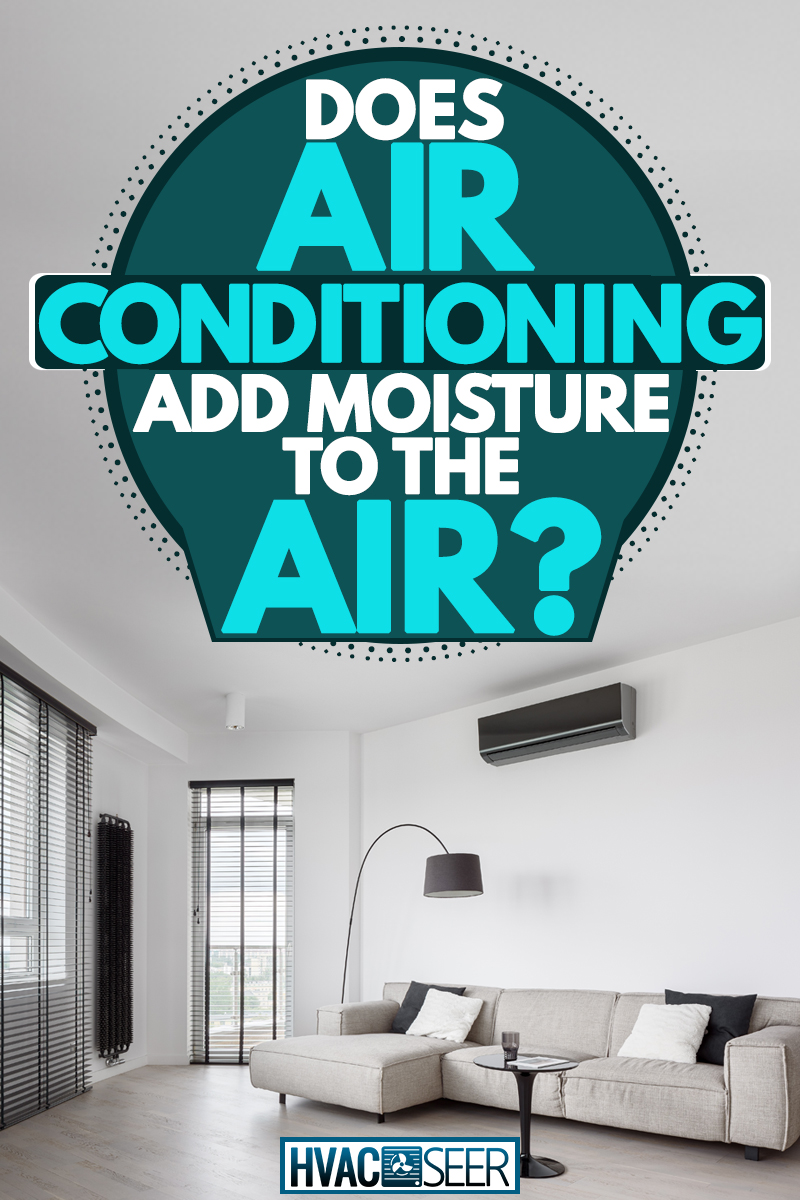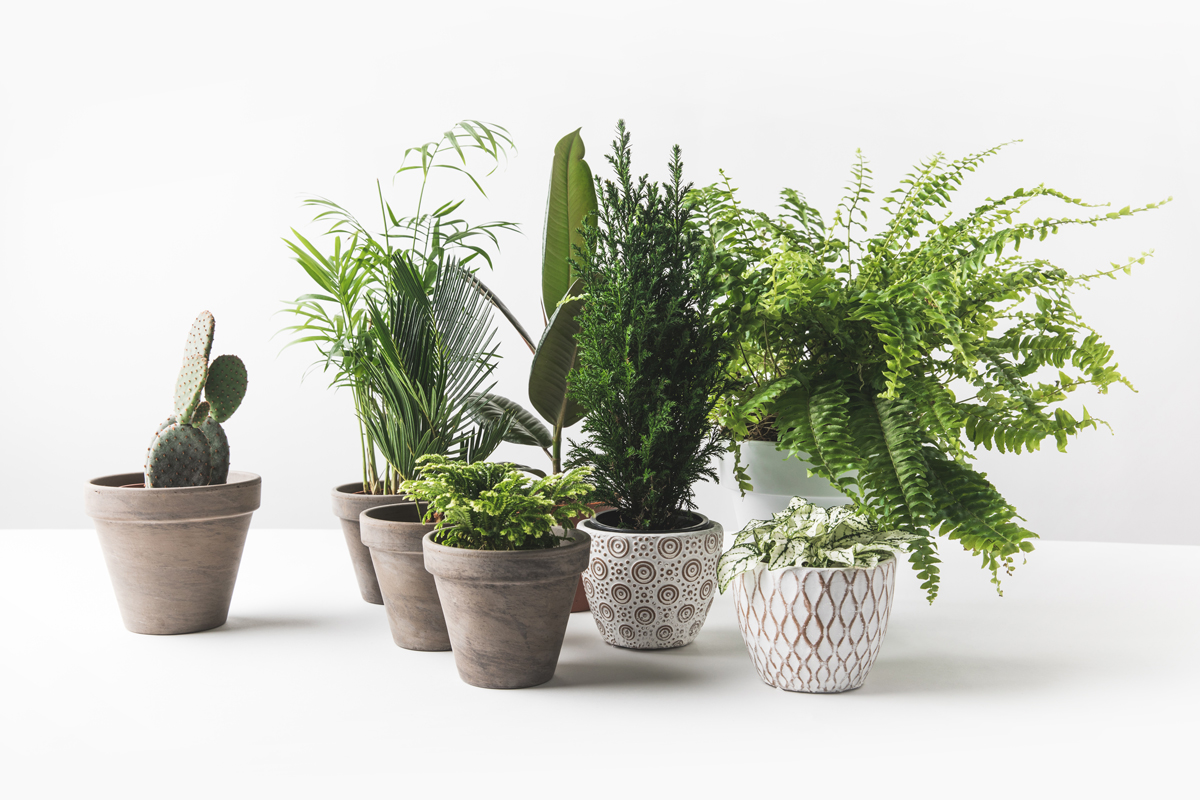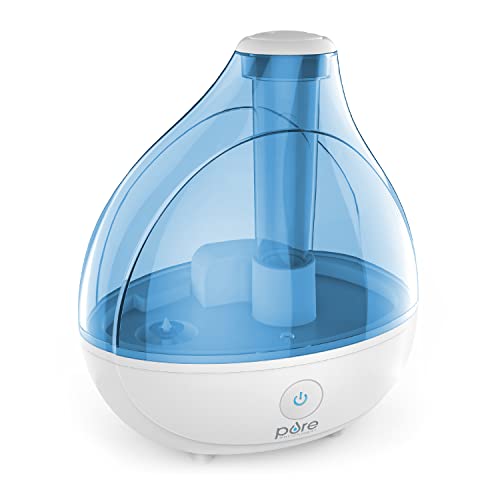Air conditioners make hot, humid summers more comfortable to endure by cooling the air throughout your home. Nothing is better than leaving the hot outdoor weather and being welcomed inside by cool air. However, do air conditioners increase your home's level of humidity when left running all day?
Generally speaking, air conditioners do not add moisture to the air in your home. Instead, they rather passively eliminate it. Of course, air conditioners do not work in the same way that dehumidifiers do, and the moisture that they pull from your air can just as readily return to it over time.
With all of this being said, how do these systems alter the health of your home? Do you need to compensate for their dehumidifying effects as the weather warms or cools? How do you increase humidity levels in the home? Keep reading to find out the answers to all these questions and more!

Air Conditioning And Moisture In The Air
As the name suggests, an air conditioner is designed to lower the temperature of your home and to make your day-to-day life more comfortable. To combat the summer heat, an air conditioner filters air through refrigerant coils and then releases it back out through your HVAC system.
In doing so, however, an air conditioner cools the particles of moisture already present in your air. These particles can return to a liquid state when exposed to the refrigerant coils. These particles can then collect within your air conditioner unit until it rests and they're able to evaporate again.
In short, air conditioners do not add moisture to your air. Rather, they passively dehumidify your home - though admittedly at a much slower rate than an active dehumidifier.
If you're concerned about the amount of moisture your air conditioner may pull from your air, you can always run a ceiling fan instead of your A/C for a few hours. Ceiling fans do not have the equipment to affect the levels of humidity in your home but can still help lower the indoor temperature.
Of course, you can always invest in a humidifier if you're finding yourself uncomfortable but unwilling to endure the hotter temperatures throughout your home.
You can find humidifiers like this one on Amazon.
Why Is My Air Conditioner Not Removing Humidity?
There are a few different reasons that may explain why the humidity levels in your home are on the rise, even when your air conditioner is running 24/7. These can include:
Your Air Conditioner May Be Too Large For Your Home
Funnily enough, bigger is not always better when you're working with an air conditioner. In fact, if your air conditioner is too large for your home, it can rapidly overwork itself to the point where it's no longer able to serve your home appropriately. An air conditioner's dehumidifying effects take a while to settle in. An air conditioner unit that works too quickly will only allow that moisture to settle back into the air.
Your Evaporator Coil May Be Dirty
Your evaporator coil, as the name suggests, helps you control the level of humidity in your home. If this coil ends up overworked or dirty, then it won't be able to do its job as effectively as it could otherwise. Unfortunately, a layperson may have a difficult time determining whether or not an evaporator coil needs maintenance. If you're not sure what's raising humidity levels throughout your home, be sure to reach out to a professional in your area to discuss the problem at hand.
Your Ductwork May Be Leaking
If the ducts throughout your home happen to have any gaps or tears, then they may be releasing water vapor into your home. As such, it'll be more difficult for you to control the amount of moisture you have indoors.
Common signs of a leak to look out for in your home include, but are not limited to:
- Unpleasant smells
- Visible water damage
- Mold clusters
- Fogging windows
- Sticking doors
Your Thermostat May Be "On" But Not Automated
There's a difference between the "on" setting on your air conditioner and the "auto" setting. When you turn your air conditioner "on," you leave it on all day without rest. This can cost you more money in the long-run and damage your air conditioner before it has time to get used to its job.
Comparatively, air conditioners left on "auto" can respond to changes in temperature throughout your home. When you give your air conditioner a chance to rest, it will have time to let the moisture it has gathered to settle, and its internal coils won't suffer from undue stress.
What Is A Good Humidity Level For A House?
Humidity may feel uncomfortable when it grows to be overwhelming, but air without it can be just as trying on your skin. As such, you'll want to try to find the sweet spot for the humidity in your home. This way, you can stay comfortable all year round without succumbing to unexpected dryness or overbearing moisture.
Everyone's comfort differs, of course. If you're looking to keep microorganisms from growing in your home, then you'll want to keep your humidity levels between 30 and 50 percent. This way, you can retain your overall comfort without worrying about mold growth or the development of other unwanted organisms in your vents.
How Should The Humidity Differ In The Summer Versus The Winter?
That said, it's often best to change the degree of humidity you have in your home based on what time of year it is and what temperature it is outdoors. For reference, personal comfort, and the overall health of your home, consider the following:
- If temperatures outside of your home exceed 50 degrees Fahrenheit, then keep your indoor humidity levels below 50 percent.
- If temperatures outdoors exceed 20 degrees Fahrenheit, then keep your indoor humidity levels below 40 percent.
- If temperatures outdoors fluctuate between 10 and 20 degrees Fahrenheit, then your indoor humidity levels should not exceed 35 percent.
- If your outdoor temperatures dip below 10 degrees Fahrenheit, then you'll want to lower the humidity levels in your home below 30 percent.
As you might have gathered, colder weather can cause the moisture in your air to condense into liquid water. As such, homes with high humidity that fall victim to colder temperatures may develop water damage where they previously had none. You'll want to work to get ahead of this kind of damage by actively lowering your internal humidity levels in response to the weather - or, alternatively, raising them as the weather starts to warm.
How Do You Increase The Humidity Level In A Dry House?
If you're worried about the levels of moisture in your home, there are several different ways that you can add to that natural humidity. After you've had a professional out to look over your air conditioner, as it may be overworking itself, you'll want to consider:
Leaving The Door Open When You Shower
When you shower, you release a significant amount of steam into the air. Instead of allowing that steam to gather in your bathroom, leave the door open and let it travel. This way, the whole of your home can benefit from a steam bath.
Leaving Out Bowls Of Water
You can also naturally increase the amount of moisture that the air inside of your home has access to by leaving bowls of water out and about. For the best effects, consider leaving bowls of water on top of your registers. This way, the water that evaporates can immediately begin to circulate through your home. You will, however, have to discourage any pets away from these bowls, as they can easily be mistaken for extra water dishes.
Bringing Houseplants Into Your Home

House plants release a fair amount of moisture into your home as they engage in transpiration. You'll need to water your plants on a consistent basis to consider receiving their benefits, of course. Should you manage, though, you can benefit both from a more comfortable living environment and one that's more beautiful, at that.
In Closing
Dehumidifiers, then, do not add moisture to your home but rather pull it out of the air. If you find that you're missing that extra humidity, you can invest in a few DIY solutions before reaching out to an area professional for guidance.

